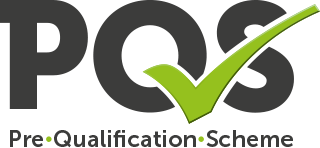Fifty per cent of the organisations quizzed in a global supply chain study have experienced a non-compliance issue from a supplier.
A survey of more than 100 supplier compliance and governance professionals found organisations were increasingly being held responsible for the actions of their providers. And companies are stepping up efforts to manage compliance globally, as the increasing complexity and fragmentation of the supply chain is raising the likelihood of non-compliance challenges.
The most common area of non-compliance experienced was around management systems and documentation (59.5 per cent). The next most common referred to environmental, health, and safety standards (29 per cent).
Customers, NGOs and regulators are now expecting companies to develop comprehensive supplier compliance policies and procedures, and conduct regular audits and inspections to evaluate supplier compliance, the study said.
In the survey, 91 per cent of organisations had established some kind of a supplier compliance strategy or programme. To create these, they took a number of factors into consideration, including industry best practice (76 per cent), internal requirements and codes of conduct (74 per cent) and global regulations (55 per cent).
However only 43 per cent focused on local laws. The report suggested that this could be a cause for concern, especially as local legislation varies from one region to the next, with companies liable to harsh regulatory penalties if they overlook them.
The majority of companies (48 per cent) had segmented suppliers and focussed on critical vendors to ensure compliance. Many companies had mapped their supply chain and ensured compliance across the entire hierarchy while some only monitored supplier compliance for certain geographies (14 per cent).
The top three methods for measuring supplier compliance were audits (76 per cent), surveys and self-assessments (60 per cent) and third-party evaluations (52 per cent).
The study said most companies approached supplier compliance management with a “myopic” view of avoiding penalties or lawsuits, rather than trying to enhance business value. It highlighted improved brand trust and credibility as one of the benefits of building ethical and compliant supply chains.
Among the recommendations of the report were that organisations should focus on supplier compliance as much as on internal compliance, segregate suppliers based on risk, conduct regular assessments of supplier controls and only choose firms with a track record of ethical practices and compliance. Supplier training and giving suppliers incentives to comply was also important, it said.
“Going forward, supply chains will only grow larger, more distributed and more complex, the report concluded. “Alongside, regulations around supplier governance are likely to increase. Succeeding in this environment will mean developing a well-defined supplier compliance management strategy and programme with a focus on continuous supplier performance monitoring, regular supplier audits and assessments, collaborative corrective actions and timely compliance reporting. Companies that embrace such a strategy will not only be well prepared for new regulatory enforcement, but will also be known as strong and ethical brands”.
